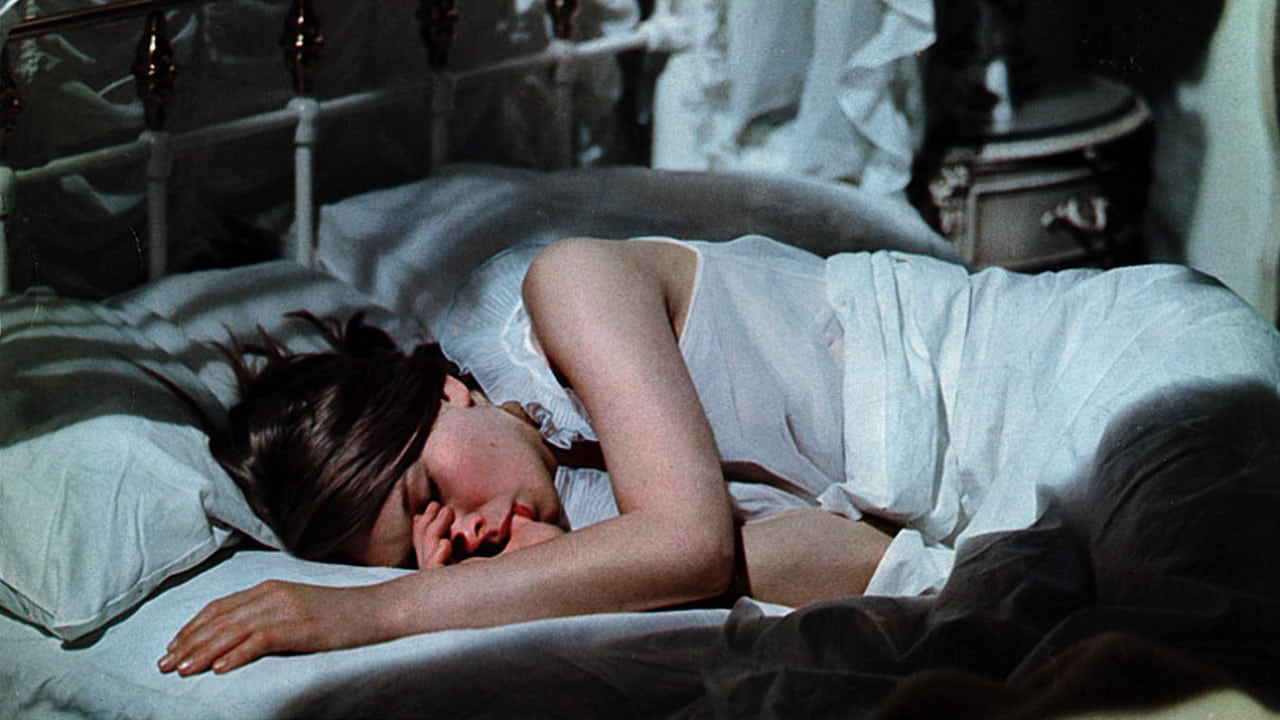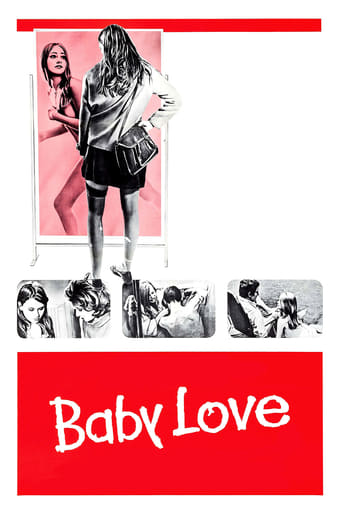

The film's masterful storytelling did its job. The message was clear. No need to overdo.
... View MoreGreat story, amazing characters, superb action, enthralling cinematography. Yes, this is something I am glad I spent money on.
... View MoreThere is, somehow, an interesting story here, as well as some good acting. There are also some good scenes
... View MoreIt's simply great fun, a winsome film and an occasionally over-the-top luxury fantasy that never flags.
... View MoreFirst off IMDb's plot synopsis is all wrong! (as usual) Luci is a beautiful troubled teenagers from the wrong side of the tracks in London. Fortunately she comes home to find her mother with slit wrists in the bathtub.Luci is taken in by a wealthy family with an unknown connection to Luci's mother. Ironically what is denied that Luci's is Harry's illegitimate daughter he abandoned is pretty much confirmed to be the reason Harry takes Luci in.The sexy flirt soon lays the grounds for the solid incestuous seduction of her father Harry and her half brother Robert. YES! Get ready for a BIG let down! The only person to bed Luci is the middle aged stepmother! Hence the film really is a tease which does not deliver anything interesting.
... View MoreMost of the films about "Swinging London' celebrated the joys and colors of the time. "Baby Love", while it was made during the heyday of "Swinging London", deals with the story of an adolescent girl called Luci, and London serves just a background for Luci and the other characters around her. The characters and their environment are portrayed with a documentary feel - they are shown in a realistic way.Luci, one day, on returning home, finds her mother dead. A great shock! For Luci there are not many choices. Her future looms black. But her mother, before killing herself, had sent a letter to a doctor who in the past had been her lover, and where she asks him to take care of her daughter Luci. The doctor is now a married man with wife, son and maid - in short, a well-off family.The doctor brings Luci (Linda Hayden, who was only 15 at the time) to his home. At first she seems just a bewildered, shy girl, but it won't take long till they discover other sides of Luci's personality.Luci needs love and protection, and for her, love and sex are not very apart. She is manipulative (but not consciously so), yet she acts by instinct - she's a bundle of contradictions, a very complex character. She'll use her powers of seduction on all members of the family, everything is turned upside down and masks fall.In some ways, "Baby Love" reminded me of "Teorema" by Pasolini, but while "Teorema" is a mystical-political parable, "Baby Love" has her feet on the ground.The creativity linked to reality, the freedom of the camera, Luci's sensuality/sexuality (there are even some bits of nudity), the nonjudgemental way of showing the characters, make "Baby Love" a very interesting film. It's a pity though that (as far as I know) the only available copies have soft (a bit washed out) colors. Anyway the film is very watchable. Well worth checking out.
... View MorePerhaps this British movie from the late 60s has virtues that were hidden from me. I didn't think much of it. (My opinion may have been tainted by the sleazy transfer to DVD.) It's the story of Luci, a fifteen-year-old girl whose mother has just committed suicide and who is taken in by her mother's former beau and his family -- a nice wife and a goggle-eyed adolescent boy.It's a pretty nice house and a comfortable place, though the father is uptight and snarls a lot. Luci exploits all the family members by suggesting she's sexually available, although there isn't a lot of nudity or simulated coitus. What it is, is a set up for a pornographic movie, but without the skin, just the rather ordinary plot. In skin flicks, a plot like this would be used as a device to hinge together the varied couplings. In an underground skin flick they'd have introduced the family mule or something. They'd bring in the chauffeur and the idiot son who is kept in the attic. Here, without the couplings, it's just dull.And it's not simply that the plot isn't exactly gripping. The only talent visible on the screen is that of Luci's adopted mother, who gives a seasoned performance. Luci herself -- that is, Linda Hayden -- could have been replaced by any reasonably good-looking kid who had stood out from the crowd in her high school plays. The editing is pretty clumsy too. Luci is groped by a neighbor in the local cinema but the camera doesn't seem to know how to handle the situation any better than the heroine. The cuts are confusing and Luci's response is a blank.It's not a terrible movie -- not a fell insult to anyone's sensibilities. It's just cheap and rudely made. A little more gratuitous nudity would have helped. However, others have apparently got more out of it than I did.
... View MoreThis is a rarely seen and unjustly neglected gem from the "swinging London" period of British film-making. It's subject matter – a nubile, underage teenage girl is adopted by a middle class family and becomes the erotic focus of father, son and mother – was certainly ahead of its time, and its amoral stance towards this material make it even more surprising. It was cut by the BBFC for its original UK cinema release (it is surprising it was granted a certificate at all) and its unflinching approach to its underage protagonist's sexual allure and responsiveness would get it into as much if not more trouble with the moral guardians of today.The film begins with cross cutting Hayden's character Luci kissing a boy in front of a gaggle of her male and female schoolmates with the suicide of her mother (a debauched and distressing Diana Dors) in a hot bath with a razor. With her mother dead, Luci goes to live with her Mum's old flame Robert, played by Keith Barron, now a wealthy and successful London doctor. Luci's presence inflames both the teenage son of the doctor and his neglected wife, both of whom attempt to take advantage of Luci's disturbed state of mind (she is having nightmares and hallucinations featuring her dead mother) and Robert himself is also susceptible to the young nymphet's charms. But Luci is no innocent - she seems to know that sex is power and she plays the game for what its worth, hanging onto her position in the house through sheer female will and exploiting the desires of each member of the family when it suits her.This portrait of Luci as colluding with those who would pray on her is troubling, but psychologically acute. Luci is both powerless, disturbed and the off-spring of a Mother who clearly (we learn in flashbacks) was no sexual wallflower. Luci is very much the product of her background, one of financial and emotional poverty, and so is rather more sympathetic than the spoilt middle-class folk whose fantasy figure of attraction and repulsion she is forced by circumstance to be. The film ostensibly looks like one of those dramas in which a cuckoo comes in to disturb a nest, but in actuality the middle-class family was always already deeply divided and she but acts as a catalyst which brings the ruptures to the surface. There is a suggestion that Luci has been sexualised before we meet her – her mother's burly lover hangs around her house both before and after the suicide & the cruel laughter from mother and lover in the flashback where Luci catches them at it suggests that he was also involved with Luci, the mother rubbing her sexual competitiveness with her daughter in the poor child's face. This reading of the film makes sense of those moments where Luci responds to improper, aggressive advances in inappropriate situations – the black man in the nightclub, the groper in the cinema, the louts in the rowboat. She also flirts heavily with Robert's friend, a depressing old lecher played by Dick Emery who acts as a sort of Clare Quilty figure, embodying Robert's worst knowledge about himself.Baby Love is brilliantly put together, using a roaming camera which constantly prowls around the characters hoping to catch them as some sordid thing and fast editing offering us glimpses of impressionist moments from each situation. It seems extraordinary that the film was made over 40 years ago – it makes most teenage drama now look like punch-pulling chicken feed.
... View More